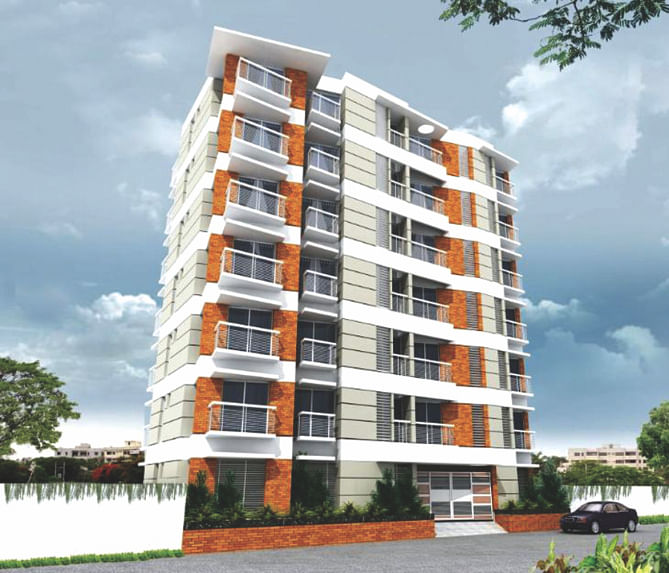Before purchasing your dream flat

Purchasing a flat becomes a lifetime dream for many people because of high scarcity of land. Among them some are purchasing their residence by expensing their whole savings. On the contrary, who have land, they handover that to the developer to construct building.
However, before entering any contract with the constructor, the landlord should be informed about the profile of the builder to whom he is decided to transfer his property. In accordance with the Real Estate Development and Management Act 2010, every building construction company must be registered. In addition, no developer entity can advertise or make a contract to sell their flats before getting approval from the concerned city development authority i.e RAJUK.
The owner and the developer should execute a contract regarding the construction of the building. In that contract the portion of the property, any transaction between the parties, settlement procedure between the parties, share and distribution of the flats, period of work and other relevant matters should be determined. Moreover, the landlord will have to execute a power of attorney in favour of the developer to sell his part of the property.
Be aware before purchasing a flat
Before purchasing a flat, the purchaser should scrutiny all the necessary documents including title deed, proper approval from concerned authorities, detail design of the building and compliance with the national building code and building construction rule, ingredients of the construction etc. The developer will deliver a list of fittings and fixtures to be used in the proposed flat. Every land developer is bound to provide all these documents to the prospective customer. The structure of the house must be designed properly by an architect and the construction must be done under the direct supervision of skilled structure and civil engineers. Additionally, the soil upon which the construction will take place must also be tested by the experts.
Furthermore, the procurer should be more cautious about any claim over the property, legal complexity, encumbrances etc. The buyer should investigate the safety, security, facilities and other technical matters of the building as well as the utility services like lift, garage, gas, water, electricity, telephone line, fire extinguisher, drainage system etc.
Both the contracting parties should determine detail terms-conditions and rights-responsibilities of them in the contract deed. The sale deed must mandatorily be registered and the contract for sale deed (Bainanama) must also be registered. However, there is a cardinal principle of land transfer that no person can hand over a better title than he himself has. Therefore, the seller has no power to sell if his title is not absolute. Hence, an intending buyer should always be aware of it. If he buys the flat from the authorised person of the owner then the power-of-attorney document must be verified in order to check his extent of authority to sell that property.
Rights of the purchaser
The developer will have to deliver the chosen flat within the agreed time. Even, he cannot change the design without prior permission of the authority and the buyer is not obliged to pay more money beyond the agreement. Nevertheless, if both the parties want to vary the condition(s) of the contract, they can do so amicably and mutually. However, the developer is bound to maintain the building up to 1 year. Further, he will repair the flat till two years for any construction default.
After the payment, the developer is bound to deliver the possession of the furnished and agreed size of flat to the purchaser as well as register a deed in this regard. If the measurement varied from the contract then the value will be adjusted within three months by the concerned parties. The buyer should always transact the money through banking channel. If the purchaser fails to pay the money or any installment then the builder can eject him by serving a 60 days preceding notice. In that case, the seller will have to return the received money through cheque within three months. However, the defaulter has a scope to pay the default installment by paying 10% extra interest to the seller. Nonetheless, the buyer cannot take this chance for more than three times.
Similarly, if the developer fails to deliver the possession within the specified time then he will have to return all the received money with necessary compensation. However, if the damaged amount is not settled in the contract then the amount will be 15% of the paid amount. Again, if the buyer wants to cancel the contract then the seller will get 10% of the paid amount as compensation.
Relief against grievance
If any discrepancy has been taken place between the seller and the buyer regarding the violation of the terms and conditions of the contract i.e. cancellation of allotment of flat without reasonable notice, construction beyond approved design, using of inferior standard materials to construct, creating encumbrances upon the property etc. then the parties will have to try to settle the matter amicably. Alternatively, the affected party can complain to the registering authority about such discrepancy.
However, if the parties are failed to resolve the matter by mutual understanding then it will be determined by arbitration tribunal constituted under the Arbitration Act 2001. It is better to insert the detail provisions of arbitration into the main sale contract, otherwise it may create complexity and the parties may not be able constitute an arbitration tribunal. In that case, after the expiry of 30 days, the purchaser can file suit to claim damages or to enforce or cancel the contract before the competent court.
In addition, the buyer also can bring criminal action under the mentioned Act to the court of first class magistrate to punish the violator. However, the court will follow summary trial procedure to conclude this type of dispute. Nonetheless, the culprit can be jailed for highest three years or slapped with Tk 20 lakh in contravening any of the provision of this law.
THE WRITER IS A SENIOR LECTURER OF LAW, DHAKA INTERNATIONAL UNIVERSITY (DIU).

 For all latest news, follow The Daily Star's Google News channel.
For all latest news, follow The Daily Star's Google News channel. 



Comments